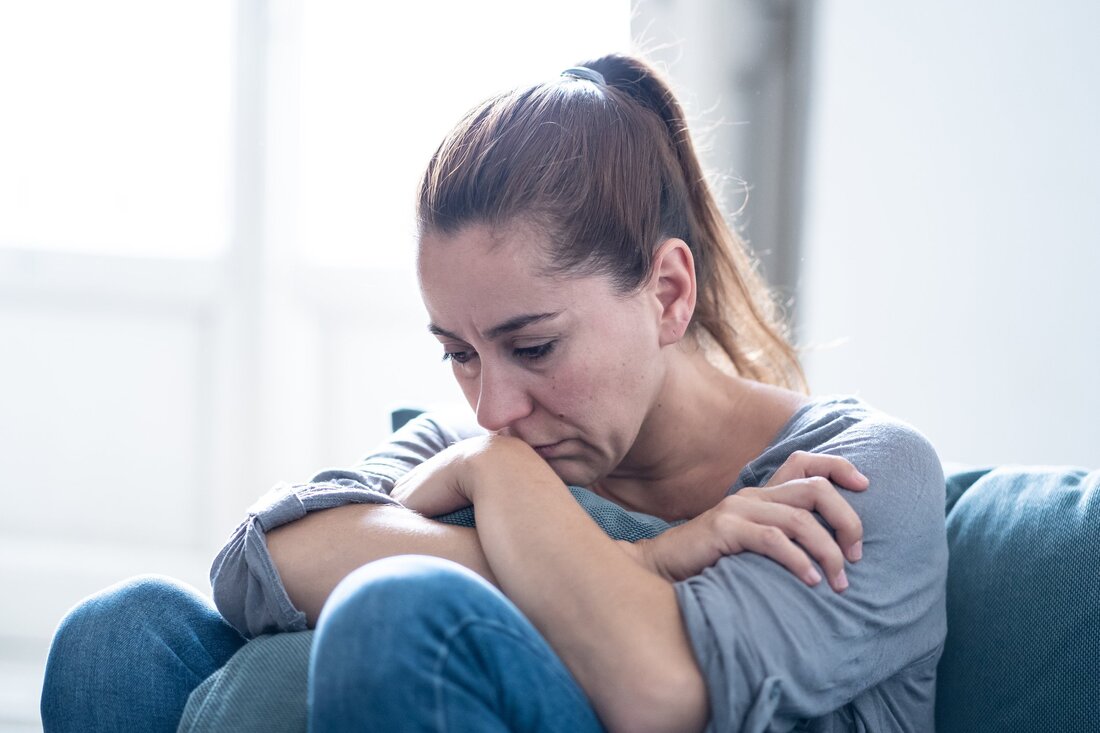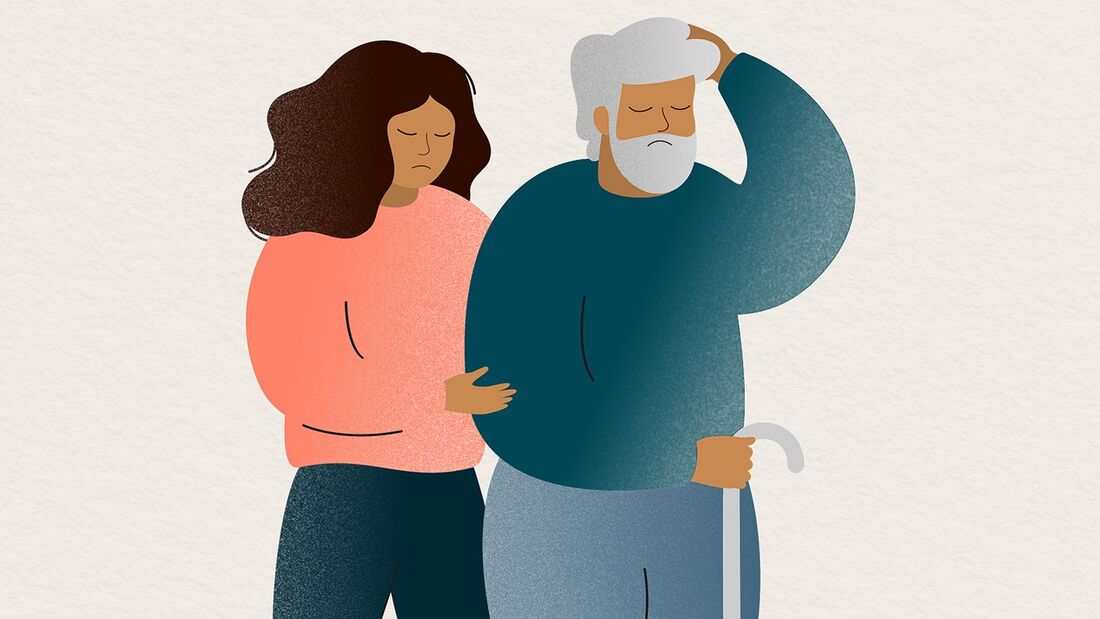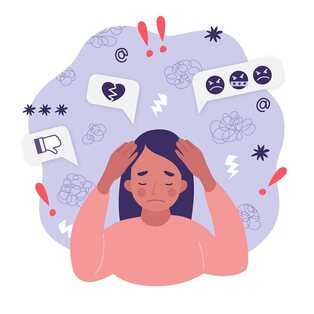|
Trauma can have a debilitating effect on a person's life. The raw emotions, intrusive thoughts, and maladaptive behaviors triggered by past experiences can create a prison of suffering. Fortunately, therapies like Eye Movement Desensitization and Reprocessing (EMDR) offer a powerful tool for breaking free.
Beyond Talk Therapy: A Different Approach Traditional talk therapy often delves into the "why" behind our issues, exploring the roots of our thoughts and behaviors. While valuable, it doesn't always address the raw emotional charge associated with trauma. EMDR takes a different path. We don't just talk about the event; we reprocess it, aiming to shift how the brain stores the memory. The Power of Bilateral Stimulation: The "eye movement" in EMDR isn't just a catchy name. It refers to various forms of bilateral stimulation, like side-to-side eye movements, hand taps, or auditory tones. While the exact mechanism remains under investigation, research suggests this stimulation activates the brain's natural processing and healing mechanisms. Unlocking the Vault: The first step is to create “grounding,” a safe space to explore the traumatic feelings. During EMDR sessions, you'll safely explore specific aspects of the traumatic memory, focusing on the most disturbing images, thoughts, and emotions. As you do, I'll guide you through the bilateral stimulation, creating a safe space for your brain to begin revisiting and reprocessing the experience. It's Not About Erasing Memories: It's important to clarify that EMDR doesn't erase memories. The events themselves remain, but their emotional sting is lessened. Imagine the memory like a locked file cabinet. EMDR helps reorganize that file, making it easier to access without being overwhelmed by the associated negativity. Transforming the Negative Narrative: As you reprocess the trauma, you'll also have the opportunity to develop a more empowering narrative about the experience. This could involve identifying positive self-beliefs, like "I am strong" or "I survived," that counter the negative self-talk often linked to trauma. Beyond Trauma: A Wider Scope: While EMDR was initially developed for trauma, its applications have expanded. It can be effective for phobias, anxiety, depression, and even grief. The core principle remains the same: addressing the underlying emotional charge associated with distressing experiences. Is EMDR for Everyone? Like any therapy, EMDR isn't a one-size-fits-all solution. It requires commitment and active participation. However, for many individuals struggling with the aftereffects of trauma, it can offer a beacon of hope and a path towards healing. If you're interested in exploring EMDR, speaking with a qualified therapist is the first step. Remember, you are not alone in your journey towards healing. Take The Next Step Take the next step in your recovery journey. Contact Scott Olds at (303) 817-8369 or email at [email protected] for a free phone or video evaluation. As a psychotherapist, I've witnessed countless individuals battling the tempestuous waves of grief. While mourning is a natural process, sometimes the loss of a loved one can be intertwined with trauma, creating a double dose of heartache. This "traumatic grief" can leave you adrift in a sea of overwhelming emotions, clinging to distorted memories and struggling to find your way back to the shore of acceptance.
This is where Eye Movement Desensitization and Reprocessing (EMDR) takes center stage. Often hailed as a revolutionary tool for trauma treatment, EMDR can be a beacon of hope for those grappling with traumatic grief. Its unique approach bypasses the analytical, ruminative tendencies of talk therapy and instead taps into the brain's inherent capacity for healing. Imagine yourself trapped in a labyrinth of painful memories, each corner echoing with the anguish of loss. EMDR becomes the Ariadne's thread, guiding you through this maze. Here's how it works:
A Tailored Approach: The beauty of EMDR lies in its flexibility. It can be seamlessly integrated into various therapeutic approaches, making it suitable for a wide range of individuals and grief experiences. Whether you've lost a loved one to sudden death, a prolonged illness, or even natural disaster, EMDR can offer a path to healing. A Beacon of Hope: While grief is a universal human experience, traumatic grief can feel like a solitary burden. EMDR empowers you to break free from its isolating grip. It offers a roadmap out of the labyrinth of pain, leading you towards a future where the memory of your loved one holds not just sorrow, but also love, gratitude, and perhaps even a renewed sense of meaning. As a psychotherapist, I've seen firsthand the transformative power of EMDR in helping individuals navigate the turbulent waters of traumatic grief. If you're struggling with a loss that feels insurmountable, remember, there is hope. EMDR can be the lighthouse guiding you back to calmer waters, allowing you to embrace life with an open heart and find peace amidst the storm. For a free phone or video call evaluation, contact Scott at (303) 817-8369 or email at [email protected]. Guilt and grief are two of the most common emotions that people experience after a loss. Guilt can be caused by a variety of factors, such as feeling responsible for the loss, wishing that you had done something differently, or feeling like you didn't love the person enough. Grief is the natural emotional response to loss, and it can manifest itself in a variety of ways, such as sadness, anger, anxiety, and loneliness.
While guilt and grief are normal emotions, they can be difficult to cope with. If you are struggling to overcome guilt and grief, there are a few things that you can do:
Here are some additional tips that a psychotherapist might use to help a client overcome guilt and grief:
Call Scott at (303) 817-8369 or email at [email protected] to see if grief counseling is right for you. As a psychotherapist and in my personal life, I have seen firsthand the impact that shame can have on caregivers for the chronically ill. Shame can be a powerful emotion that can lead to feelings of isolation, inadequacy, and worthlessness. It can also make it difficult to ask for help or support.
There are a number of reasons why caregivers may feel shame. They may feel ashamed of the illness itself, or of the way it has changed their lives. They may feel ashamed of their own limitations, or of the things they have to do to care for their loved one. They may also feel ashamed of the financial or emotional burden that the illness has placed on their family. Shame can have a significant impact on a caregiver's mental and physical health. It can lead to anxiety, depression, stress, and burnout. It can also make it difficult to cope with the demands of caregiving. If you are a caregiver for a chronically ill loved one, it is important to remember that you are not alone. There are many other caregivers who are going through the same thing. You are not to blame for the illness, and you are not inadequate. You are doing the best you can in a difficult situation. If you are struggling with feelings of shame, there are things you can do to cope. First, it is important to talk to someone about how you are feeling. A therapist can help you to understand your shame and develop coping mechanisms. You can also find support groups for caregivers, where you can connect with others who understand what you are going through. It is also important to remember to take care of yourself. Make sure to get enough sleep, eat healthy foods, and exercise regularly. You should also make time for activities that you enjoy. Taking care of yourself will help you to be better able to cope with the demands of caregiving. If you are struggling with feelings of shame, please know that you are not alone. There is help available. Please reach out for support. Here are some additional resources for caregivers who are struggling with shame:
If you are struggling as a caregiver and need help, contact Scott at (303) 817-8369 or [email protected]. As a psychotherapist, I have seen firsthand the emotional and psychological toll that chronic illness can take on individuals and their families. The physical symptoms of chronic illness can be debilitating, but the emotional and psychological effects can be just as challenging.
Some of the common emotional and psychological challenges that people with chronic illness face include:
If you are struggling to cope with the emotional and psychological effects of chronic illness, please reach out for help. There is no shame in seeking help, and it can make a big difference in your quality of life. Tips for Coping with the Emotional and Psychological Toll of Chronic Illness
To find out more, schedule an appointment with Scott Olds at (303) 817-8369 or email me at [email protected]. My Story
I open my blog with a story of how I arrived at grief and loss counseling. My journey through grief and recovery began when my wife was diagnosed with ALS, an incurable, debilitating, and fatal disease. Everything changed for us. I went from husband to caregiver and Teri went from family caregiver to patient. We felt a deep sense of loss. We lost our stability, peace, and privacy. Our house became “Grand Central Station,” with weekly doctor visits and all manner of tests. Even our happy house of 20 years became a challenge, lacking handicap accessibility. Our life was changing and we felt powerless to stop it. At first she needed a cane, then a walker, and finally a wheelchair, all within the first four months. We reached out and began attending monthly ALS support groups. There, a patient told us that ALS stands for ”always losing something” -- I agreed -- not just for the patient, but for everyone involved in this journey. The first year was filled with grief for the loss of many things. The hardest thing I had ever done was to tell my children their mother was going to die. I will never forget the look in their eyes. Surprisingly our relationships with extended family and friends changed. Individuals I expected to be there for us became distant, unable to cope with our situation, while others, unexpectedly, stepped in with incredible support. For Teri and me that first year was miserable. As a couple we were frustrated and angry. Publicly we appeared to be coping well. Alone, the tears poured out. With the help of counseling and support groups, we improved our coping skills and regained a measure of control over our lives. We realized that quality of life was most important to us and resolved to make the most of it. We made some tough medical decisions and shifted our focus to caring for each other and sharing our experience with others. I learned the hard way and eventually with the help of others. Today, I pass on what I learned about grief to help you move beyond loss to experience joy and happiness. Defining Grief Broadly defined, grief is the loss of anything to which we are emotionally attached. When I began counseling, my focus was death and dying because that's what I understood. As I worked with others, I realized grief touched them in many ways. To help them, I trained on techniques for marriage and family, trauma, childhood development, working with couples. The more I learned, it always circled back to some form of grief or loss. Indeed, grief and loss is frequently a factor in counseling. We are always trying to return to the perception of normal. Some changes are by choice like getting married or moving to a new house. Adjusting to involuntary changes is harder. Grief gets shoved into a small corner when in truth it can shade many of our experiences, from the simple to the complex. Here are a few examples that can cause grief and unresolved emotional pain.
Any big change in our lives can have some grief of what we wanted or thought about where your life was headed. Life is about change and when change happens you have loss. In that way grief and loss is part of life. The Problem of Grief What is the impact? Grief can be expressed physically, emotionally, socially, and spiritually. The symptoms of grief are varied and might include frequent crying, difficulty sleeping or feeling detached from others. Depression is a typical response that can adversely impact your health, relationships, and career. Feelings of anger and frustration can result from not getting the support you need from friends and relatives. Denial can lead to intense sorrow and anger. Untreated grief numbs your feelings, takes the joy and happiness out of life. Support from friends may be too much or too little, even if well intended. Some friends become distant while others repeatedly ask the same questions, reminding us of our unresolved grief without resolving it. You can't hold your feelings inside. If your symptoms of grief persist, treatment can help. You are not alone. Treating Grief Counseling is an effective treatment for grief, reducing the symptoms and helps you reintegrate with your friends and experience joy again. The techniques I use are highly personalized because everyone’s needs are different. I evaluate each client and develop a personal connection to know your unique needs. The treatment plan is customized for you. I am a man in a field dominated by women. Men are frequently perceived as uncaring and lack compassion. I enjoy the chance to change my client’s minds. Establishing that emotional connection, a sense of caring, improves outcomes. You can't make progress without being in a safe place. Compassion is an essential part of how I work and I use active listening to engage my clients in a safe space. I don't force anyone down a path that makes them uncomfortable. Everyone deals with grief differently. My goal is to help those who are overwhelmed, and their lives disrupted, to bring hope and joy to living again. Hope All these things can be helped if you take the first step and seek professional help. As a grief and loss counselor, people ask how I can be around so much sadness and depression. I tell them what an incredible experience it is to watch someone transcend grief and feel happiness joy and laughter. I am here to guide you to a better place in your life, out of the darkness into the light, from despair to hope. |
AuthorScott F. Olds, Psychotherapist Categories
All
Archives
February 2024
Call Scott at
|
Package Discount: Get a 4-session package for 10% off! Call for details.
I offer sessions in the office, in an open space (weather permitting), by phone, and by video sessions for your safety and convenience. Take a deep breath and give me a call at (303) 817-8369 or email me at [email protected].
Confidential: I am HIPAA compliant, so your privacy is protected.
Crisis Information: If you are in crisis, call Colorado Crisis and Support at 844-493-8255 or the national Suicide and Crisis Lifeline at 988 for 24/7 for help in an emergency. These lifelines provide free and confidential support for people in distress, prevention, and crisis resources for you or your loved ones.
(303) 817-8369
[email protected]
10960 W. 65th Way
Arvada, Colorado 80004
My office is in Arvada, Colorado.
Privacy Policy









